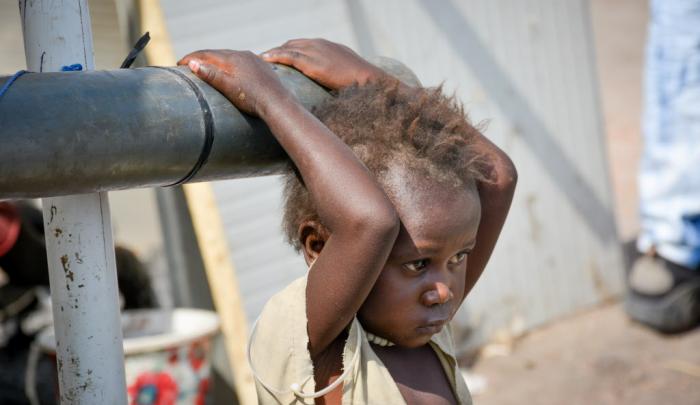Highlights
- World Vision concerned for safety of aid workers, civilians
- Reports of unaccompanied children trapped by the violence, people unable to access aid
- Humanitarian community calling for cessation of fighting

JUBA, South Sudan (February 19, 2014) — World Vision is deeply concerned about the safety of civilians and aid workers within Malakal, after an attack earlier this week that appears to be a renewal of hostilities between the opposition and government forces.
“The resumption of fighting within Malakal town, where World Vision has a presence, is a big setback to humanitarian efforts,” said Perry Mansfield, director of World Vision’s programs in South Sudan. “Both parties should end hostilities immediately, to prevent more bloodshed that is inflaming the worsening humanitarian situation in the country.”
World Vision’s response team, based within the Malakal United Nations compound, has provided humanitarian assistance to thousands of people displaced by the violence within Malakal town. Aid workers are worried the rekindling of violence will make it even more difficult to access people in the town and surrounding areas who are desperately in need.
“We have received reports of unaccompanied children who are trapped by the violence, far from even the most basic help like food rations and clean water. Even families who have already received help could see their rations run low if this violence continues without end. We hope both parties can come together to make sure children and the most vulnerable don’t become unintentional victims of the fighting,” Mansfield said.
World Vision has been working alongside other aid agencies to provide emergency relief to thousands of civilians in Malakal following the signing of Cessation of Hostilities Agreement between the government and opposition forces that was signed on January 23. Recently, World Vision distributed World Food Program (WFP)External Link relief food rations to more than 20,000 people within the Malakal United NationsExternal Link compound. World Vision had also commenced water and sanitation activities within the town.
At this point, World Vision’s relief efforts in Malakal have had to be temporarily halted, due to the increased violence.
– END –
Note to Editors:
World Vision has worked in South Sudan since 1989. Before independence, it was among the few aid agencies that provided emergency assistance during war to the displaced populations in the then Southern Sudan region of Sudan. This became the Republic of South Sudan after independence in July 2011. Before independence, Southern Sudan had signed the Comprehensive Peace Agreement. This enabled World Vision embark on implementing recovery and development activities to help stabilize the region.
Spread across seven of the ten states of South Sudan, World Vision programs include Health and Nutrition, Food Security and Economic Development, Water and Sanitation, Education, Peace Building and Protection, Food Assistance and Emergency Response. World Vision is still operating ongoing programming in Western Equatoria, Warrap and Northern Bahr el Ghazal States and also scaling up operations in conflict affected areas. World Vision will continue to monitor the security and humanitarian situation in the country and respond to the immediate needs of the conflict-affected population within its operation areas.
About World Vision:
World Vision is a Christian humanitarian organization conducting relief, development, and advocacy activities in its work with children, families, and their communities in nearly 100 countries to help them reach their full potential by tackling the causes of poverty and injustice. World Vision serves all people regardless of religion, race, ethnicity, or gender. For more information, please visit www.WorldVision.org/media-center/ or on Twitter @WorldVisionUSA.